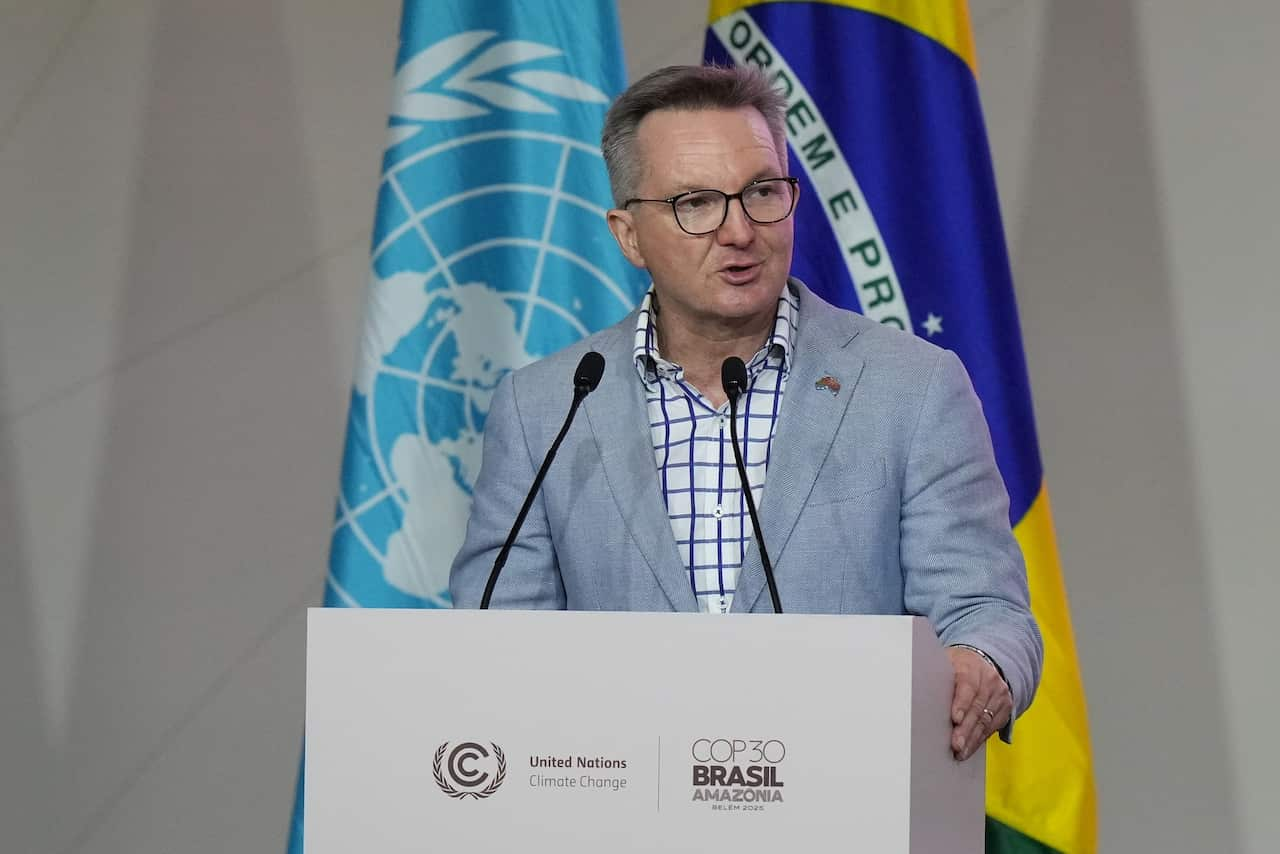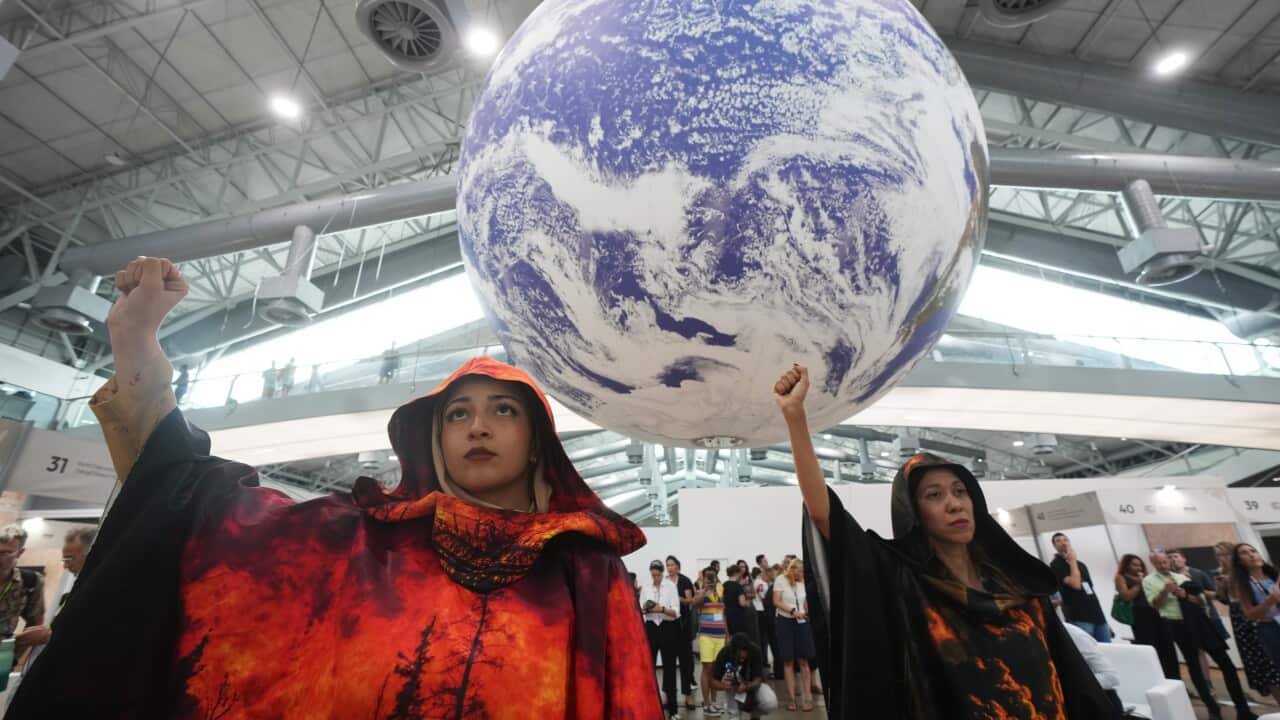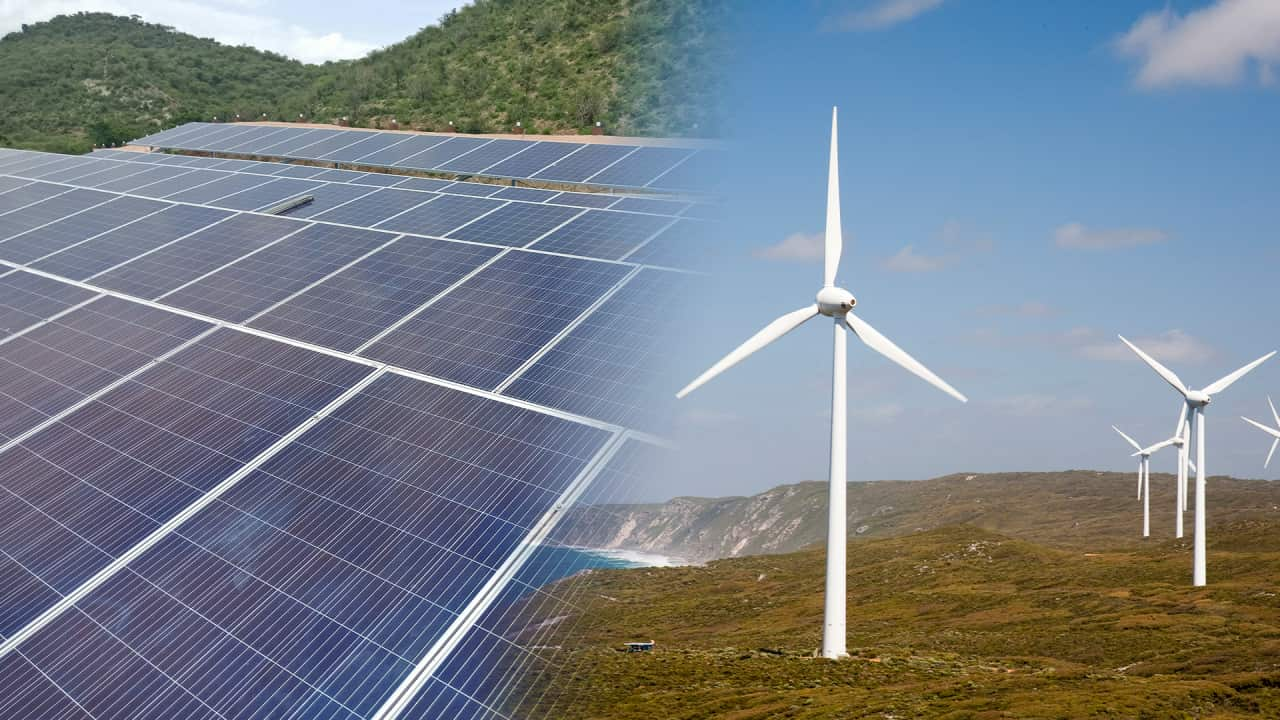The COP30 conference in Belém, Brazil has ended after two weeks with a compromised climate deal that exposed deep rifts between countries on future action.
On Saturday local time, the conference's presidency pushed through the modified agreement, after nearly 200 countries approved by consensus.
The deal launches a voluntary initiative to speed up climate action to help countries meet their existing pledges to reduce emissions, and calls for rich countries to at least triple the amount of money they provide to help developing ones adapt to a warming world by 2035.
But its passage only came after a coalition that included the European Union and Australia dropped demands for the agreement to include a plan to phase out fossil fuels.
The group of 80 countries had pushed for a transition from oil, coal and gas, calling for follow-through on an agreement at COP28 in 2023 to move away from fossil fuels.
That led to tense negotiations with an opposing side that included Middle East nations like top oil exporter Saudi Arabia, along with Russia, coal producer India, and some other developing nations, who said any mention of fossil fuels in the agreement was off limits.
The EU agreed on Saturday not to block a final deal, but said it did not agree with the conclusion.
"We would have preferred to have more ambition on everything," EU climate commissioner Wopke Hoekstra told reporters.
"It is not perfect, but it is a hugely important step in the right direction," he said.
COP30 president André Corrêa do Lago acknowledged that some countries had "greater ambitions for some of the issues at hand" and would feel disappointed by the new wording of the agreement.
Corrêa do Lago said on Saturday that the presidency was issuing a side text on fossil fuels — as well as on protecting forests — while keeping it out of the main accord because of the lack of consensus.
Several countries, including three of Brazil's neighbours in Latin America, objected to the summit ending without stronger plans for reining in greenhouse gases or addressing fossil fuels.

Noting that fossil fuels were by far the biggest contributor of planet-warming emissions, Colombia's negotiator said her country could not go along with a deal that ignored science, saying: "A consensus imposed under climate denialism is a failed agreement."
Panama's climate negotiator, Juan Carlos Monterrey, said before the final plenary that his country was not happy with the summit result.
"A climate decision that cannot even say 'fossil fuels' is not neutrality, it is complicity. And what is happening here transcends incompetence," Monterrey said.
A stalemate in the talks had pushed the conference into overtime.
As the clocks struck midnight on Friday, the final scheduled day of the conference, negotiators struggled to reach consensus over the wording of the draft agreement.
In a grey carpeted room at the Hangar Convention Centre, government representatives milled about with researchers, activists, and the media as a handful of key negotiators worked behind closed doors.

Arthur Wyns, research fellow at the University of Melbourne and former adviser to the COP28 presidency, told SBS News it had been a "really long day".
"People were hanging out on chairs, and there were negotiators having a beer in the corner," Wyns told SBS News.
While it isn't unusual for COP negotiations to go well into the night on the final day of the conference, this year's conference came at a time of increased urgency, with the world having passed the threshold of keeping warming to 1.5C above pre-industrial levels.
Fossil fuels and deforestation dropped
Tensions began after Brazil published its draft wording of the final deal in the early hours of Friday morning local time.
The text was in stark contrast to an earlier draft, which offered three separate options for nations to reduce their reliance on coal, oil and gas — the source of 68 per cent of global greenhouse gas emissions, according to the United Nations.
"A lot of parties were quite surprised," Wyns told SBS News, adding that references to deforestation were also removed.
While the main COP30 agreement sidestepped mention of fossil fuels, around two dozen countries — including Australia — signed a statement called the Belém Declaration on the Transition Away from Fossil Fuels.
The statement recognises the need to phase out fossil fuels as soon as possible, and welcomes the recent International Court of Justice advisory opinion on states' responsibilities regarding climate change.
Dr Simon Bradshaw, COP31 lead at Greenpeace Australia, welcomed the move that acknowledged a "legally binding international commitment" to limit warming.
"This is the strongest ever statement from Australia on fossil fuels, and we intend to hold them to it," Bradshaw said in a statement.
A 'significant step back'
An agreement to transition away from fossil fuels was included in the wording of the COP28 conference in Dubai in 2023.
It was the first COP to officially recognise the role of fossil fuels in global warming, but stopped short of calling for a full "phase out" of their usage.
"It took a lot of diplomatic balancing in the United Arab Emirates to get the wording in," Wyns said.
The new agreement recalls the consensus reached at COP28 on transitioning away from fossil fuels, and calls on countries to voluntarily "accelerate" their climate action.

This year's COP conference was also a crucial test of global cooperation against climate change, after the leaders of China, the United States and India all decided not to attend.
Wyns, before the final agreement had been reached, told SBS News that a COP outcome that didn't name fossil fuels, or ended without an agreement at all, would be a "significant step back".
"If they walk away it could be seen or construed as a failure of multilateralism or a failure of the Paris Agreement process."
"And it also means that Türkiye and Australia will have to deal with this mess next year."
Possible 'diplomatic trainwreck in the making'
Wyns also told SBS News the recently announced COP31 deal — under which Türkiye will host next year's event, but Australia will lead negotiations — could be a "diplomatic trainwreck in the making".
"Australia will lead the climate negotiations, but Türkiye will hold the political power at the end of the day, who will gavel through the decisions, literally, with a hammer."
According to a partnership agreement seen by SBS News — which is yet to be formally signed — Türkiye will preside over the conference as president. At the same time, Australia will elect a vice president and a "president of negotiations".
The document states that, if there is a difference of view between the two nations, "consultations will take place until the difference is resolved to mutual satisfaction".
Wyns said the problem is Türkiye and Australia are "miles apart when it comes to climate change priorities".
"If Australia doesn't wield the political power to come up with a political solution, then we have a serious problem because it means Türkiye will be the final decision-maker."
Speaking to SBS News from Belém, Climate and Energy Minister Chris Bowen said the agreement — made to resolve both nations' bids to host the event — was a "significant concession" for both Australia and Türkiye.
"It would be great if Australia could have it all, but we can't have it all."
— With additional reporting by Reuters and Agence France-Presse
For the latest from SBS News, download our app and subscribe to our newsletter.



